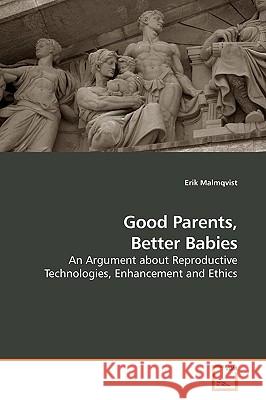Good Parents, Better Babies » książka
Good Parents, Better Babies
ISBN-13: 9783639191974 / Angielski / Miękka / 2009 / 200 str.
New reproductive technologies, together with an increasingly richer understanding of human genetics, bring with them great promises to improve the human lot. But the possibilities that they offer of choosing who will be born raise moral concerns that are difficult to make sense of with the help of familiar ethical principles. Are these concerns well-founded, or are they dubious emotional reactions, beyond the pale of reason? This book is a critique of some of the ways in which this and related questions have often been discussed. It is also an attempt to shed new and different light on them with the help of theoretical perspectives rarely found in bioethical inquiry - phenomenology, hermeneutics and Aristotelian ethics. The book is addressed to scholars and students in bioethics and applied philosophy, and to anyone else interested in the profound impact that emerging biotechnologies have on contemporary society and culture.
New reproductive technologies, together with an increasingly richer understanding of human genetics, bring with them great promises to improve the human lot. But the possibilities that they offer of choosing who will be born raise moral concerns that are difficult to make sense of with the help of familiar ethical principles. Are these concerns well-founded, or are they dubious emotional reactions, beyond the pale of reason? This book is a critique of some of the ways in which this and related questions have often been discussed. It is also an attempt to shed new and different light on them with the help of theoretical perspectives rarely found in bioethical inquiry - phenomenology, hermeneutics and Aristotelian ethics. The book is addressed to scholars and students in bioethics and applied philosophy, and to anyone else interested in the profound impact that emerging biotechnologies have on contemporary society and culture.











